BMW iX3 vs Peugeot 5008 - Differences and prices compared
Compare performance (469 HP vs 325 HP), boot space and price (59100 £ vs 37600 £) at a glance. Find out which car is the better choice for you – BMW iX3 or Peugeot 5008?
Costs and Efficiency:
Price and efficiency are often the first things buyers look at. Here it becomes clear which model has the long-term edge – whether at the pump, the plug, or in purchase price.
Peugeot 5008 has a clearly advantage in terms of price – it starts at 37600 £, while the BMW iX3 costs 59100 £. That’s a price difference of around 21463 £.
In terms of energy consumption, the advantage goes to the BMW iX3: with 15.10 kWh per 100 km, it’s slightly more efficient than the Peugeot 5008 with 17.80 kWh. That’s a difference of about 2.70 kWh.
As for range, the BMW iX3 performs to a small extent better – achieving up to 805 km, about 136 km more than the Peugeot 5008.
Engine and Performance:
Under the bonnet, it becomes clear which model is tuned for sportiness and which one takes the lead when you hit the accelerator.
When it comes to engine power, the BMW iX3 has a noticeable edge – offering 469 HP compared to 325 HP. That’s roughly 144 HP more horsepower.
In acceleration from 0 to 100 km/h, the BMW iX3 is noticeable quicker – completing the sprint in 4.90 s, while the Peugeot 5008 takes 6.50 s. That’s about 1.60 s faster.
In terms of top speed, the Peugeot 5008 performs slight better – reaching 220 km/h, while the BMW iX3 tops out at 210 km/h. The difference is around 10 km/h.
There’s also a difference in torque: BMW iX3 pulls evident stronger with 645 Nm compared to 511 Nm. That’s about 134 Nm difference.
Space and Everyday Use:
Beyond pure performance, interior space and usability matter most in daily life. This is where you see which car is more practical and versatile.
Seats: Peugeot 5008 offers noticeable more seating capacity – 7 vs 5.
In curb weight, Peugeot 5008 is noticeable lighter – 1700 kg compared to 2360 kg. The difference is around 660 kg.
In terms of boot space, the BMW iX3 offers evident more room – 520 L compared to 348 L. That’s a difference of about 172 L.
In maximum load capacity, the Peugeot 5008 performs noticeable better – up to 2232 L, which is about 482 L more than the BMW iX3.
When it comes to payload, Peugeot 5008 evident takes the win – 640 kg compared to 465 kg. That’s a difference of about 175 kg.
Who wins the race?
The BMW iX3 proves to be has a very small edge and therefore becomes our DriveDuel Champion!
BMW iX3 is the better all-rounder in this comparison.
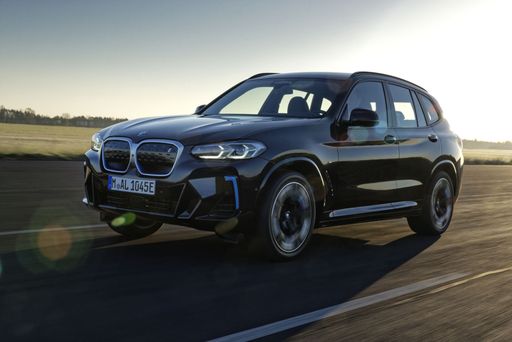
BMW iX3
Costs and Consumption
View detailed analysis
Engine and Performance
View detailed analysis
Dimensions and Body
View detailed analysis
BMW iX3
The BMW iX3 brings BMW's familiar SUV poise into the electric era, blending restrained styling and a comfortable, composed ride that will please traditionalists dipping their toes into electrification. It's quiet, practical and rather grown-up about going electric — a sensible choice for buyers who want BMW driving manners without the drama.
details
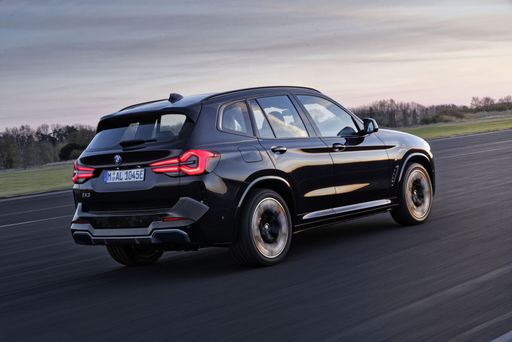
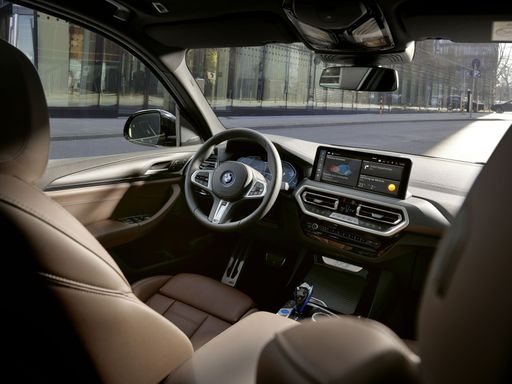
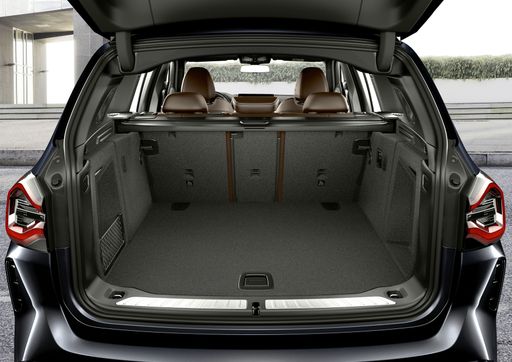
Peugeot 5008
The Peugeot 5008 blends Peugeot's sharp design with the space and versatility families actually need, wrapping clever packaging and a premium-feeling cabin in a crisp, SUV-like silhouette. It drives with more poise than you'd expect from a people carrier, serves up practical touches and flexible seating for everyday chaos, and still looks good when parked outside the school gates.
details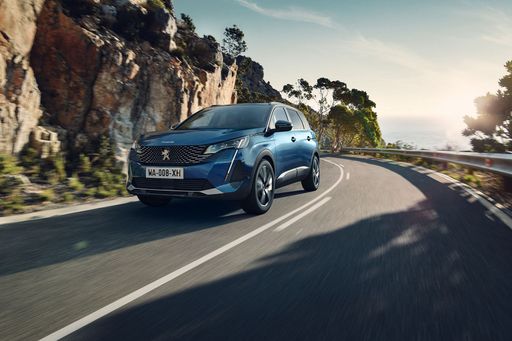

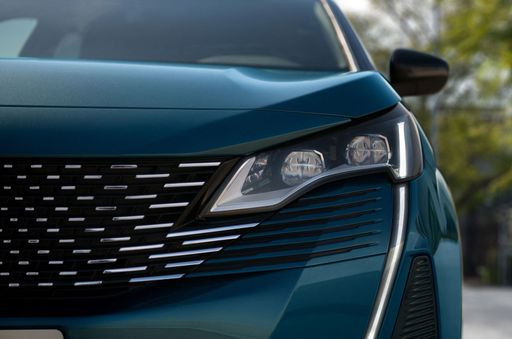


|

|
|
|
|
Costs and Consumption |
|
|---|---|
|
Price
59100 - 64600 £
|
Price
37600 - 54200 £
|
|
Consumption L/100km
-
|
Consumption L/100km
2.7 - 5.6 L
|
|
Consumption kWh/100km
15.10 kWh
|
Consumption kWh/100km
17.8 - 18.6 kWh
|
|
Electric Range
805 km
|
Electric Range
78 - 669 km
|
|
Battery Capacity
108.70 kWh
|
Battery Capacity
0.4 - 96.9 kWh
|
|
co2
0 g/km
|
co2
0 - 127 g/km
|
|
Fuel tank capacity
-
|
Fuel tank capacity
55 L
|
Dimensions and Body |
|
|---|---|
|
Body Type
SUV
|
Body Type
SUV
|
|
Seats
5
|
Seats
7
|
|
Doors
5
|
Doors
5
|
|
Curb weight
2360 kg
|
Curb weight
1700 - 2344 kg
|
|
Trunk capacity
520 L
|
Trunk capacity
294 - 348 L
|
|
Length
4782 mm
|
Length
4791 mm
|
|
Width
1895 mm
|
Width
1895 mm
|
|
Height
1635 mm
|
Height
1694 mm
|
|
Max trunk capacity
1750 L
|
Max trunk capacity
2178 - 2232 L
|
|
Payload
465 kg
|
Payload
596 - 640 kg
|
Engine and Performance |
|
|---|---|
|
Engine Type
Electric
|
Engine Type
Electric, Petrol MHEV, Plugin Hybrid
|
|
Transmission
Automatic
|
Transmission
Automatic
|
|
Transmission Detail
Reduction Gearbox
|
Transmission Detail
Reduction Gearbox, Dual-Clutch Automatic
|
|
Drive Type
All-Wheel Drive
|
Drive Type
Front-Wheel Drive, All-Wheel Drive
|
|
Power HP
469 HP
|
Power HP
145 - 325 HP
|
|
Acceleration 0-100km/h
4.90 s
|
Acceleration 0-100km/h
6.5 - 10.2 s
|
|
Max Speed
210 km/h
|
Max Speed
170 - 220 km/h
|
|
Torque
645 Nm
|
Torque
230 - 511 Nm
|
|
Number of Cylinders
-
|
Number of Cylinders
3 - 4
|
|
Power kW
345 kW
|
Power kW
107 - 239 kW
|
|
Engine capacity
-
|
Engine capacity
1199 - 1598 cm3
|
General |
|
|---|---|
|
Model Year
2026
|
Model Year
2024 - 2025
|
|
CO2 Efficiency Class
A
|
CO2 Efficiency Class
A, D, B
|
|
Brand
BMW
|
Brand
Peugeot
|
What drive types are available for the BMW iX3?
The BMW iX3 is available as All-Wheel Drive.
The prices and data displayed are estimates based on German list prices and may vary by country. This information is not legally binding.
